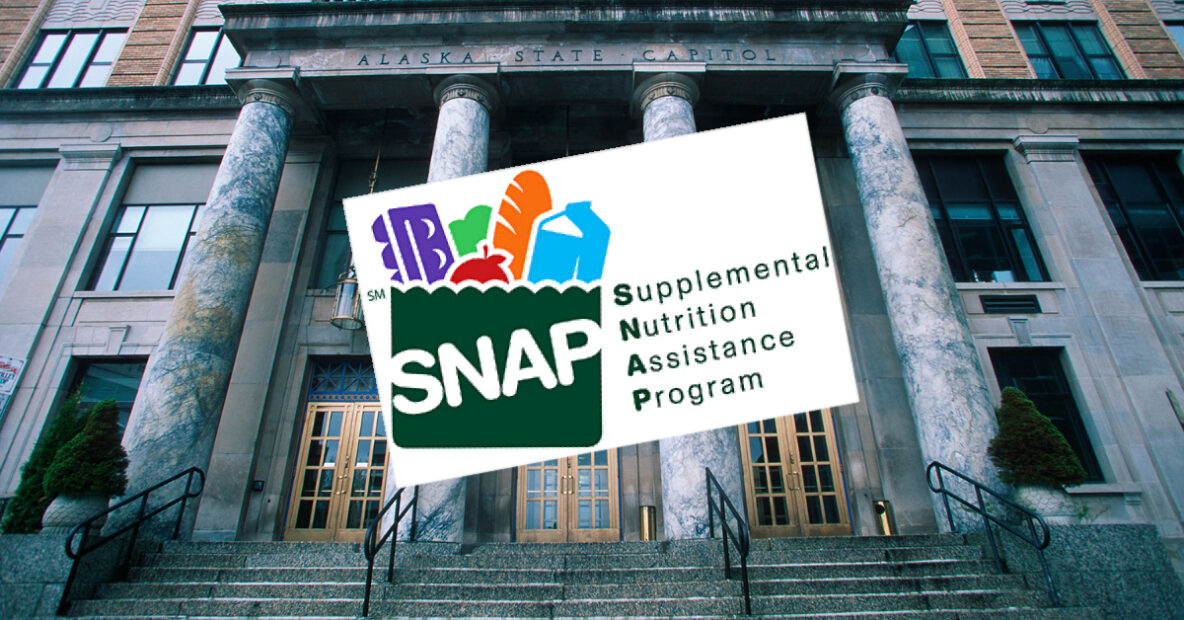Alaska senators gathered public testimony Tuesday in Juneau on a bill that would relax certain eligibility requirements for receiving federal food assistance, including increasing the income limit and doing away with an asset test.
If passed, the household income requirements for SNAP food benefits would increase from 130% of the federal poverty guideline to 200%, a move that many other states have already made under the broad-based categorical eligibility (BBCE) policy. The measure would also streamline the documentation process by doing away with the assets test and adopting other federal guidelines. Current state citizenship and work requirements would remain in effect.
SB 149, sponsored by Sen. Cathy Giessel, R-Anchorage, was referred to the Health and Social Services Committee in May.
“The current structure that SNAP is being administrated with kind of disincentivizes work and so by allowing families to save and get off the program, and also by eliminating the benefits cliff, it will incentivize and allow working families to be able to take that second job, to be able to accept raises,” said Ron Meehan, the director of government affairs at the Food Bank of Alaska. “Right now, if you make even a dollar more [per hour], you ultimately end up losing benefits and can end up worse off.”
The bill highlights food insecurity in the state, citing issues with the food supply, dependency on imports and a SNAP backlog, which is thousands of applications deep. Alaskans wait as long as 10 months for their applications to be processed.
“By addressing the limitations of the current system and aligning with modernization efforts, BBCE emerges as a timely and strategic solution to the challenges faced by working families and seniors in Alaska,” Giessel wrote in the bill’s sponsor statement. “It is not merely a policy adjustment but a transformative step towards building a more reliant and prosperous future for Alaska and its residents.”
The current SNAP program serves one in eight Alaskans, Giessel said in Tuesday’s Health and Social Services Committee meeting. There’s a fiscal note in the bill which would require money for two additional staff, she said.
If it passes, the effective date would be July 1, 2025.

